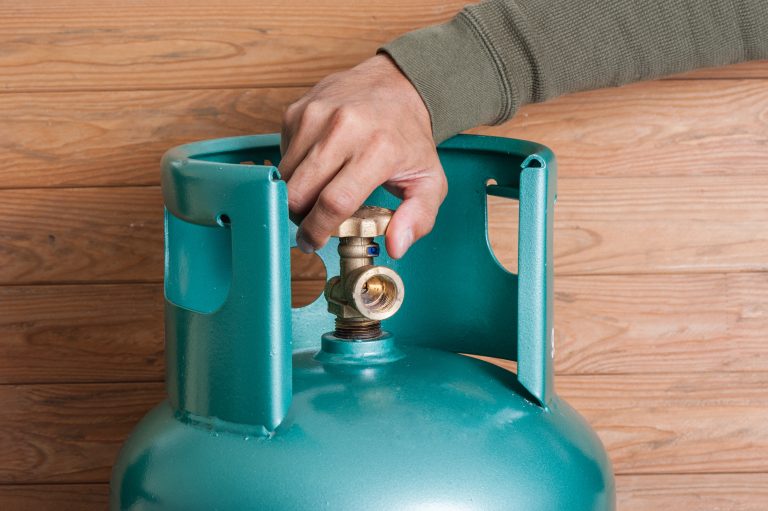As Gas Safety Week approaches, the team at John Williams Heating Services in Chippenham is raising awareness of the crucial steps homeowners can take to ensure their gas safety. The annual awareness week, now in its 13th year, was established to reduce the number of deaths, illnesses, and accidents caused by unsafe gas supplies and appliances across the UK.
John Williams, a seasoned heating engineer, welcomes the opportunity to remind people of the importance of gas safety “It’s crucial for everyone to realise that small, straightforward actions can greatly enhance their safety,” he says. “By taking a few straightforward precautions, people can be confident they’re doing everything possible to protect themselves and their families. We’re committed to spreading the word on how best to do that.”
Top Ten Gas Safety Tips
With years of experience in gas safety, John Williams offers the following ten tips to help ensure your home’s gas usage is safe and up to date:
- Check Your Appliances for Warning Signs
Gas appliances, like any home convenience, suffer from wear and tear and need regular checks to ensure they remain safe to use. Look out for black marks or stains around the appliance, a weak yellow flame instead of a sharp blue one, and excessive condensation in the room where the appliance is kept. - Recognise Carbon Monoxide Poisoning Symptoms
More than 1,000 people in the UK suffer from carbon monoxide poisoning each year. Prolonged exposure can be fatal. Symptoms can include headaches, nausea, dizziness, shortness of breath, and fatigue. In severe cases, it can cause unconsciousness or collapse. If anyone in your home experiences these symptoms, it may indicate the presence of carbon monoxide. - Install a Carbon Monoxide Alarm
Carbon monoxide alarms are inexpensive, easy to install, and could save your life. These devices monitor the room’s atmosphere and alert you with a noise if carbon monoxide levels exceed safe limits, allowing you to take swift action. - Service Your Gas Appliances Annually
To maintain safety, it’s crucial to have your gas appliances, including your boiler, serviced annually. If you rent, your landlord must cover this cost and provide you with a copy of the Gas Safety Record—it’s a legal requirement. - Use a Gas Safe Registered Engineer
Ensure you always use a Gas Safe registered engineer for the installation, servicing, or repair of your gas appliances. Even well-meaning friends or family members who offer help should be avoided unless they’re properly qualified. Remember to check both sides of the engineer’s ID card to confirm their qualifications. You can confirm an engineer’s qualifications by visiting GasSafeRegister.co.uk or calling 0800 408 5500. - Understand the Risks of Unsafe Gas
Unsafe gas in your home poses serious risks, including carbon monoxide poisoning, fires, and explosions. The number of gas-related domestic fires and explosions in the UK has risen since 2017, a trend that concerns both the Health and Safety Executive and the Gas Safe Register. While it’s tempting to skip checks during a cost of living crisis, gas safety is a vital investment. - Use Appliances Only for Their Intended Purpose
Never use a gas appliance for anything other than its designed purpose. For example, don’t use a gas cooker to heat a room or attempt to heat water on top of a gas heater. - Keep Chimneys and Vents Clear
While it may be tempting to block air vents during winter to prevent draughts, keeping them clear is crucial for safe appliance operation. Chimneys should also be kept clear and checked annually if they are in use. - Know How to Handle a Gas Emergency
If you smell gas or suspect a problem with your supply or appliance, leave the property immediately and call the Gas Emergency Number: 0800 111 999. Do not return until you receive advice from the emergency line. If a gas pipe is struck or damaged, report it immediately, even if no leak is detected. The emergency line is available 24/7. - Spread the Word About Gas Safety
Now that you’re informed about gas safety, share these tips with friends and family.
John Williams stresses the importance of public education on gas safety. “Most incidents involving gas are entirely preventable,” he says. “Gas is a fantastic resource, but it’s essential that safety measures are in place and that people remain vigilant about their supply and appliances. That’s the message we’re emphasising during Gas Safety Week and beyond.”


